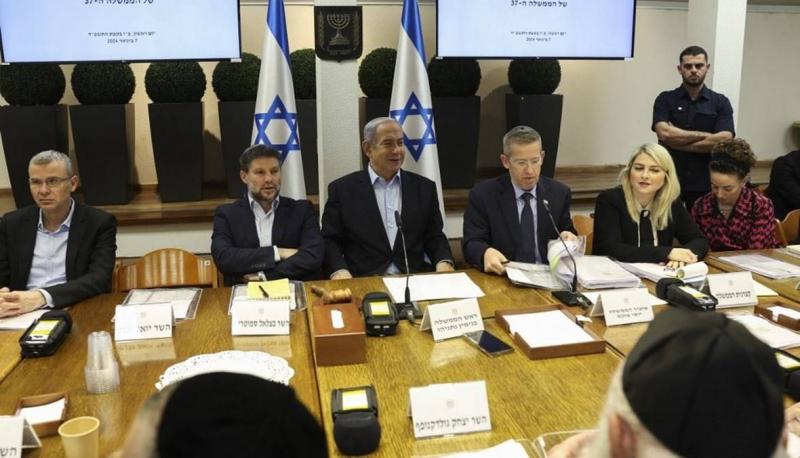The future of the Israeli government, which unites opponents and allies, is hanging by a thread after two of its senior members harshly criticized its leader, Benjamin Netanyahu, issuing him an ultimatum regarding his strategy in Gaza. The politically diverse emergency coalition formed after the shocking attack by Hamas on October 7 is rapidly disintegrating, with the war in the enclave entering its eighth month and patience towards the divisive prime minister seemingly running thin.
In the last 48 hours, two of the three ministers in the Israeli internal war council—a group of senior ministers and military leaders managing the country’s strategy and decisions during wartime—opposition leader Benny Gantz and Defense Minister Yoav Galant, have levied scathing criticisms at Netanyahu regarding his reluctance to endorse the "day after" plan for Gaza once the conflict concludes. Gantz, a former chief of the Israeli army, threatened that the National Unity Party he leads would withdraw from the coalition government unless a proposal for security and governance in the Gaza Strip is presented by June 8. Meanwhile, Galant warned that he would not accept a long-term Israeli military or civilian administration in Palestinian territories after the conflict ends.
Procedurally, Netanyahu could continue to wield power if these two ministers leave his government, but that would mean he would have to rely entirely on the support of far-right extremists, like National Security Minister Itamar Ben Gvir and Finance Minister Bezalel Smotrich. These ministers are demanding he work towards expelling Palestinians from Gaza and resettling Israelis in their place, with plans to apply the same approach to the West Bank in the future.
Interactions within the war council have become noticeably tense. In a recent meeting of this ruling body, Ben Gvir shouted at Knesset member Gadi Eisenkot from the National Unity Party (a former army chief like Gantz) saying, "We've heard enough from you generals." Eisenkot, who lost his son in this war, retorted, labeling Ben Gvir a "draft dodger," pointing out that the National Security Minister is barred from military service due to his past involvement in right-wing extremist terrorism.
Frustration is evident among Israeli defense officials over Netanyahu and right-wing forces' refusal to allow a Palestinian administration to replace Hamas in Gaza, culminating in the military spokesman publicly criticizing the government during a press conference instead of defending it. In response to a question about whether Hamas could launch attacks in areas supposedly cleared by the Israeli army for not permitting an alternative Palestinian administration, Admiral Daniel Hagari acknowledged the reality of the situation "without a doubt," but added that "this issue is for the decision-making politicians."
It is worth noting that growing anger persists among the families of Israeli hostages taken by Hamas in Gaza. These families are continuously organizing protests demanding a ceasefire. The recent discovery of the bodies of four hostages over the past hours has intensified outrage towards Netanyahu due to his apparent hesitation to accept a peace deal.
In response to the increasing criticism, the Israeli Prime Minister has adopted an offensive posture against his government rivals. His office described Benny Gantz's remarks as "empty and trite statements." It added: "At a time when our heroic fighters are battling to dismantle Hamas in Rafah, Gantz chooses to issue an ultimatum to the Prime Minister instead of to Hamas."
Benjamin Netanyahu continues to insist that the best way to save the remaining Israeli hostages is to achieve a complete victory over Hamas. He believes that the deal on the table, which involves releasing Palestinian prisoners in exchange for Israeli hostages, is simply unacceptable.
The Israeli Prime Minister has been accused of wanting to prolong the war to preserve himself amid public investigations into the catastrophic security failures that led to the massacre carried out by Hamas, and he is also under separate police investigations regarding allegations of bribery, fraud, and breach of trust.
Netanyahu has managed to withstand both external pressures on his government— including those from the United States, whose support for Israel is crucial for its continued conflict—and the internal division deriving from the attack on Rafah, as well as calls to increase aid to Gaza. For now, he seems determined to resist internal pressures.
In conclusion, Benjamin Netanyahu, who has persistently managed to survive politically, shows no signs of readiness to surrender. His insistence on continuing the struggle indicates that the war proceeds amid further divisions within Israeli society and politics.




